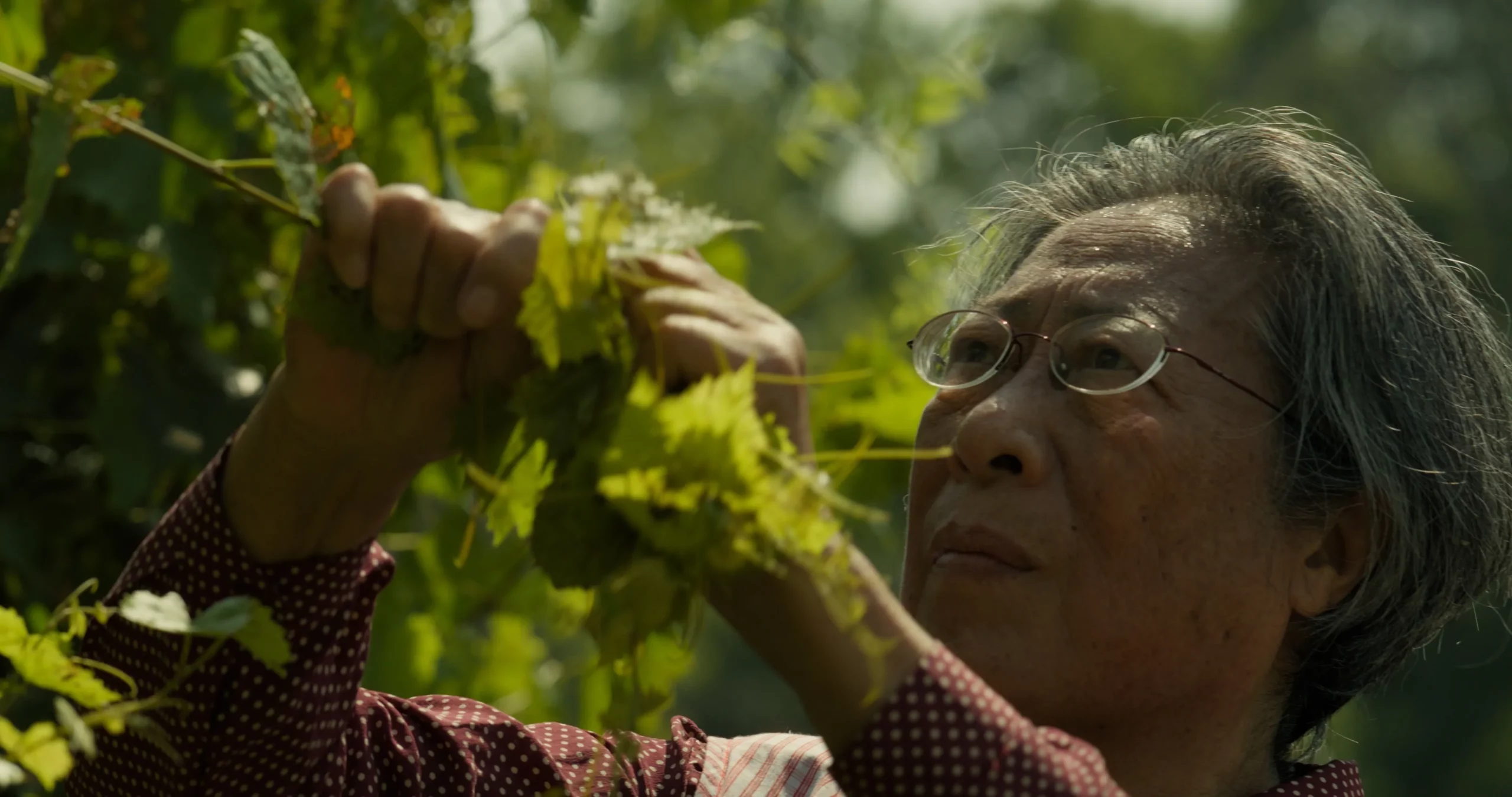A Coming-of-Old-Age Film: An Interview with the Director of Lan’s Garden
Film Interviews
How does love change as we pass into old age? This is the fundamental question at the center of Jennifer Ru Zhou’s evocative short film Lan’s Garden. Following Lan, the aging matriarch of a Chinese-American family, the story explores her mutating relationships with her descendants as she begrudgingly becomes more dependent on them. Thought-provoking and compassionate; dreamy and vibrant; heartbreaking and hopeful—Lan’s Garden is a triumph of visual storytelling.
The story tackles the obstacles of later life such as the loss of autonomy, the desire to connect with family members and the shame of relying on others. “Lan’s Garden is a coming-of-old-age film,” says Zhou. “It is about the stage right before the end of life, and we, as a society, are not ready to face that period of our lives.” In the short, Lan (or “Laolao” which means grandmother in Mandarin) struggles to fix a leaky pipe in her attic. Her daughter and son-in-law warn her not to make the dangerous climb and try to repair it for her, but Lan continually disobeys them when she’s unsupervised. In contrast to this strained relationship, Lan connects with her grandson Nico as the two spend time in her garden where she offers him berries, shielding him from their thorns.
Even as her house—an extension of her physical self—crumbles from the inside, Lan still finds solace in being able to provide food from her garden to her family. As a representation of her love, the garden continues to thrive and provide, blooming beneath the soft patter of rain even as water threatens to destroy Lan’s own shelter.
Employing limited dialogue, Lan’s Garden instead relies on clever symbolism and the compelling performances of its cast (including Lan Miao as the protagonist with Kathy Wu, Ning Jiang and Ryan Jiang acting in the ensemble). Performances are understated, communicating far more with wayward glances than through speaking. This emphasis on showing rather than telling endows the short film with a rawness and intimacy that is hard to find in mainstream Hollywood.
As the writer, editor and director of Lan’s Garden, Zhou drew on her own experience trying to connect with her grandmother for inspiration. “It comes from a very real and personal place,” says Zhou. “When I started to verbalize and actualize my own story into a film, I started to notice more and more [of] that story in other people’s lives as well.”
Lan’s Garden is shot spectacularly—each frame drips with color, at times resembling a watercolor painting or a Studio Ghibli background. In the garden, verdant greens, pastel blues and velvety purples dance across the screen to a soft piano soundtrack, interrupted only by birdsong and the trilling of cicadas. At times, the camera peeks through the leaves giving you the feeling that you are a part of the garden itself, tended and nurtured by Lan as she tries to continue her role as caregiver. The interior of Lan’s house, in contrast, is coated in musty yellows and browns, lending it a feeling of shabbiness. In the attic, Lan is surrounded by old toys and trophies, symbolizing how much she values her role as a nurturer and yet how outdated that role has become.
Fundamentally, Lan’s Garden is a story of connection, in whatever form it takes. “The film started from a question …” says Zhou. “How do we make it hard for the people who love us, to love us?” Every relationship in the film is complex, teetering between adoration and frustration, yet each character is empathetic and realistic, an echo of ourselves as we navigate supporting and needing support from our own loved ones. Lan’s Garden has already earned the prestige of being shown at this year’s Slamdance Film Festival, but its universal themes will ensure that it is timeless. –Nicole Svagr
Read more of SLUG‘s comprehensive coverage of the 2024 Slamdance Film Festival.
